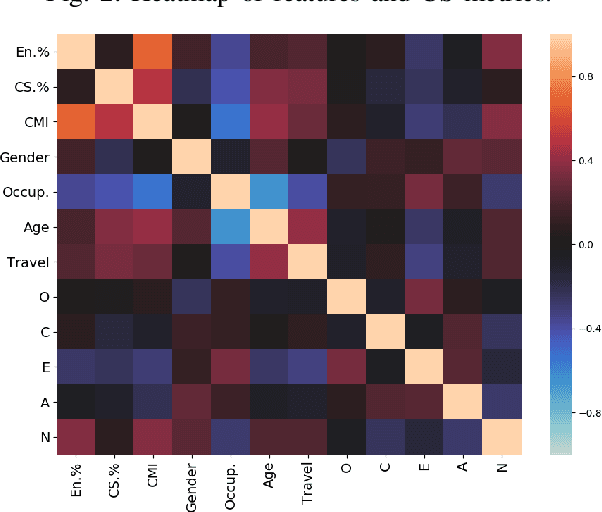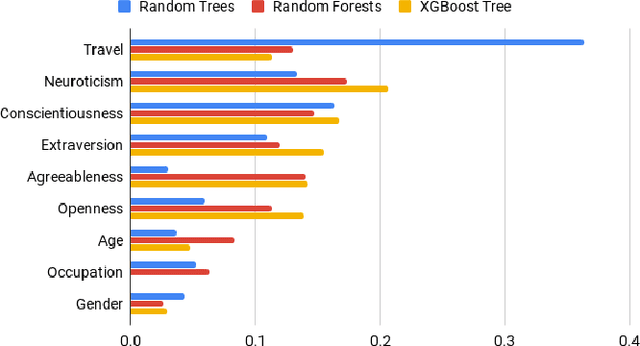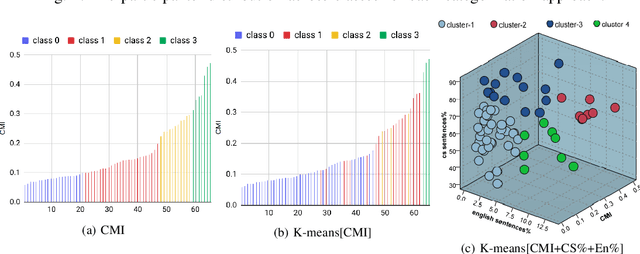Predicting User Code-Switching Level from Sociological and Psychological Profiles
Paper and Code
Dec 13, 2021



Multilingual speakers tend to alternate between languages within a conversation, a phenomenon referred to as "code-switching" (CS). CS is a complex phenomenon that not only encompasses linguistic challenges, but also contains a great deal of complexity in terms of its dynamic behaviour across speakers. This dynamic behaviour has been studied by sociologists and psychologists, identifying factors affecting CS. In this paper, we provide an empirical user study on Arabic-English CS, where we show the correlation between users' CS frequency and character traits. We use machine learning (ML) to validate the findings, informing and confirming existing theories. The predictive models were able to predict users' CS frequency with an accuracy higher than 55%, where travel experiences and personality traits played the biggest role in the modeling process.
 Add to Chrome
Add to Chrome Add to Firefox
Add to Firefox Add to Edge
Add to Edge